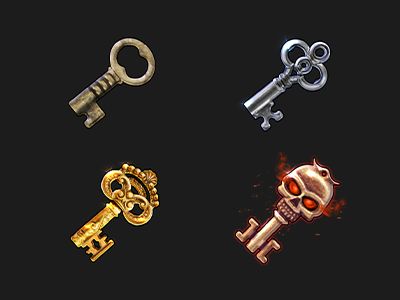https://bloggingphrase.com/unblocked-games-67/ Game keys are alphanumeric codes, usually provided by game publishers or distributors, that serve as a unique identifier for a specific copy of a game. These keys are used to unlock and activate the game, granting the player access to its content. Game keys are distributed through various channels, including physical copies of games, digital marketplaces, and online retailers.
Types of Game Keys
There are several types of game keys, each serving a distinct purpose:
- Product Keys: Product keys are the most common type of game key. They are typically required to install and activate a game on a player’s device. Once entered, the product key verifies the legitimacy of the copy and allows the player to access the game.
- DLC Keys: Downloadable Content (DLC) keys provide access to additional in-game content, such as expansion packs, skins, or digital items. These keys are often included with special editions of games or can be purchased separately.
- Beta Keys: Beta keys grant access to pre-release versions of a game, allowing players to participate in beta testing and provide feedback to developers. Beta keys are usually limited in availability and offer a sneak peek into a game’s development.
- Season Pass Keys: Season pass keys unlock access to a bundle of future DLCs and content updates for a game. They provide players with ongoing content and often come at a discounted price compared to purchasing DLCs individually.
- Pre-Order Keys: Pre-order keys are provided to customers who pre-purchase a game before its official release date. These keys grant early access or exclusive in-game items as an incentive for pre-ordering.
- Promotional Keys: Game publishers often distribute promotional keys as part of marketing campaigns or giveaways. Players can redeem these keys to access the game for free or receive special items.
Distribution Channels for Game Keys
Game keys are distributed through various channels, catering to different preferences and purchasing methods:
- Retail Copies: Physical game copies purchased from brick-and-mortar stores or online retailers often include a product key inside the packaging. These keys are used to activate the game.
- Digital Marketplaces: Digital distribution platforms such as Steam, Epic Games Store, Origin, and GOG offer digital game keys for purchase. After buying a key, players can download and install the game directly from the platform.
- Key Resellers: Key reseller websites, sometimes referred to as grey market sellers, offer game keys at discounted prices. However, the legitimacy of keys from these sources can be questionable, as they may involve unauthorized or region-locked keys.
- Official Game Websites: Game publishers’ official websites may sell game keys directly to customers, ensuring the authenticity of the keys. This method also allows publishers to maintain control over distribution.
The Significance of Game Keys
Game keys play a pivotal role in the gaming industry for several reasons:
1. Copy Protection
Game keys serve as a form of copy protection. They ensure that only legitimate copies of a game can be activated and played. This helps combat piracy and protect the intellectual property of game developers and publishers.
2. Distribution and Accessibility
Game keys facilitate the distribution of games through various channels, making it convenient for players to access and enjoy their favorite titles. Digital distribution platforms have expanded the reach of games to a global audience.
3. Marketing and Promotions
Game keys are often used in marketing campaigns to incentivize pre-orders, reward loyal players, or promote new content. They serve as a valuable tool for attracting and retaining players.
4. Revenue Generation
Game keys contribute to the revenue generated by the gaming industry. Whether through the sale of base games, DLCs, season passes, or special editions, game keys are a significant source of income for developers and publishers.
Game Key Authentication
The authentication process for game keys varies depending on the platform and distribution method. However, the general steps involve:
- Acquisition: Players obtain game keys through purchases, promotions, or other means, depending on the type of key.
- Redemption: To activate the game, players typically need to redeem the key on the appropriate platform or game client. This process may involve creating an account or logging in.
- Verification: The platform or game client verifies the key’s authenticity by checking it against a database of valid keys. If the key is legitimate and hasn’t been used before, the game is unlocked for the player.
- Installation: Once verified, players can download and install the game on their device. The key is often tied to the player’s account, allowing them to access the game from multiple devices if supported.
Key Reselling Controversy
While game keys are essential for legitimate distribution, the gaming industry has faced challenges related to unauthorized key reselling. Key reseller websites often offer game keys at significantly discounted prices, which can attract budget-conscious gamers. However, there are several concerns associated with these platforms:
- Lack of Accountability: Key resellers may operate without oversight, potentially leading to the sale of fraudulent or unauthorized keys.
- Risk of Fraud: Players who purchase from key resellers may unknowingly acquire stolen or revoked keys, which can result in the loss of access to the game.
- Impact on Developers: Key reselling can negatively impact game developers and publishers by diverting sales away from legitimate channels and undermining their ability to support and maintain games.
To address these concerns, gamers are encouraged to purchase game keys from official and authorized sources, such as digital marketplaces, publishers’ websites, and reputable retailers.
The Future of Game Keys
As the gaming industry continues to evolve, the role of game keys may undergo changes as well. Some trends and developments to watch for include:
1. Digital-Only Distribution
The shift toward digital-only distribution is likely to continue, with fewer physical copies of games being produced. This may lead to an increased reliance on digital game keys for authentication and access.
2. Subscription Services
Subscription-based gaming services, such as Xbox Game Pass and PlayStation Now, may influence the distribution of game keys. These services often provide access to a library of games without the need for individual keys.
3. Enhanced Security Measures
Game publishers and distributors may implement advanced security measures to combat unauthorized key reselling and piracy, ensuring that game keys are more secure and difficult to exploit.
4. Blockchain Technology
Blockchain technology has the potential to enhance the security and transparency of game key distribution. Some platforms are exploring blockchain-based solutions to verify the authenticity of keys.
In conclusion, game keys are a fundamental element of the gaming industry, serving as both a means of distribution and a form of copy protection. They provide players with access to games while allowing developers and publishers to protect their intellectual property. However, the prevalence of unauthorized key reselling highlights the importance of purchasing keys from legitimate sources to ensure a safe and enjoyable gaming experience. As the gaming landscape continues to evolve, game keys will remain a central component, adapting to meet the needs of players and creators alike.



